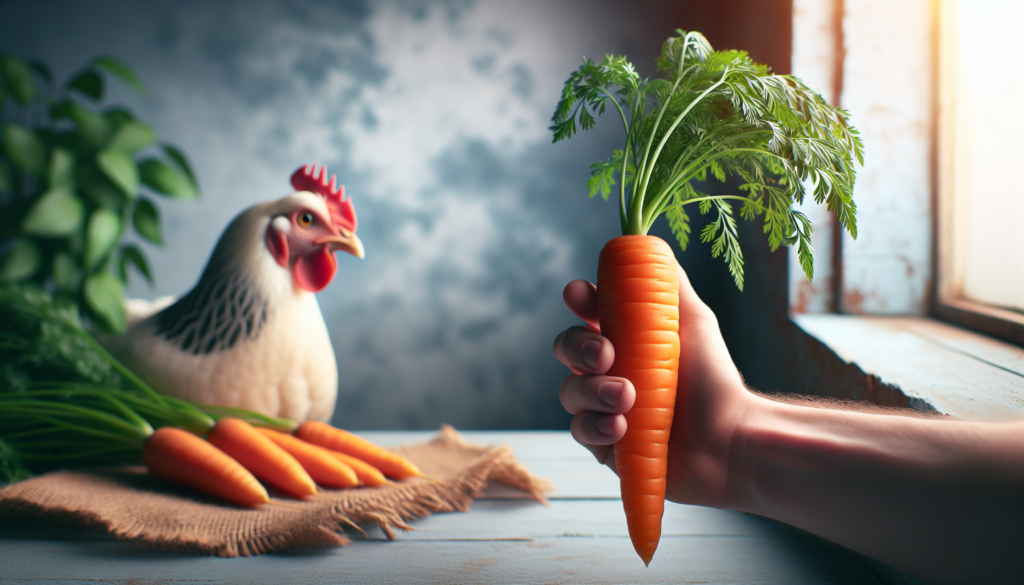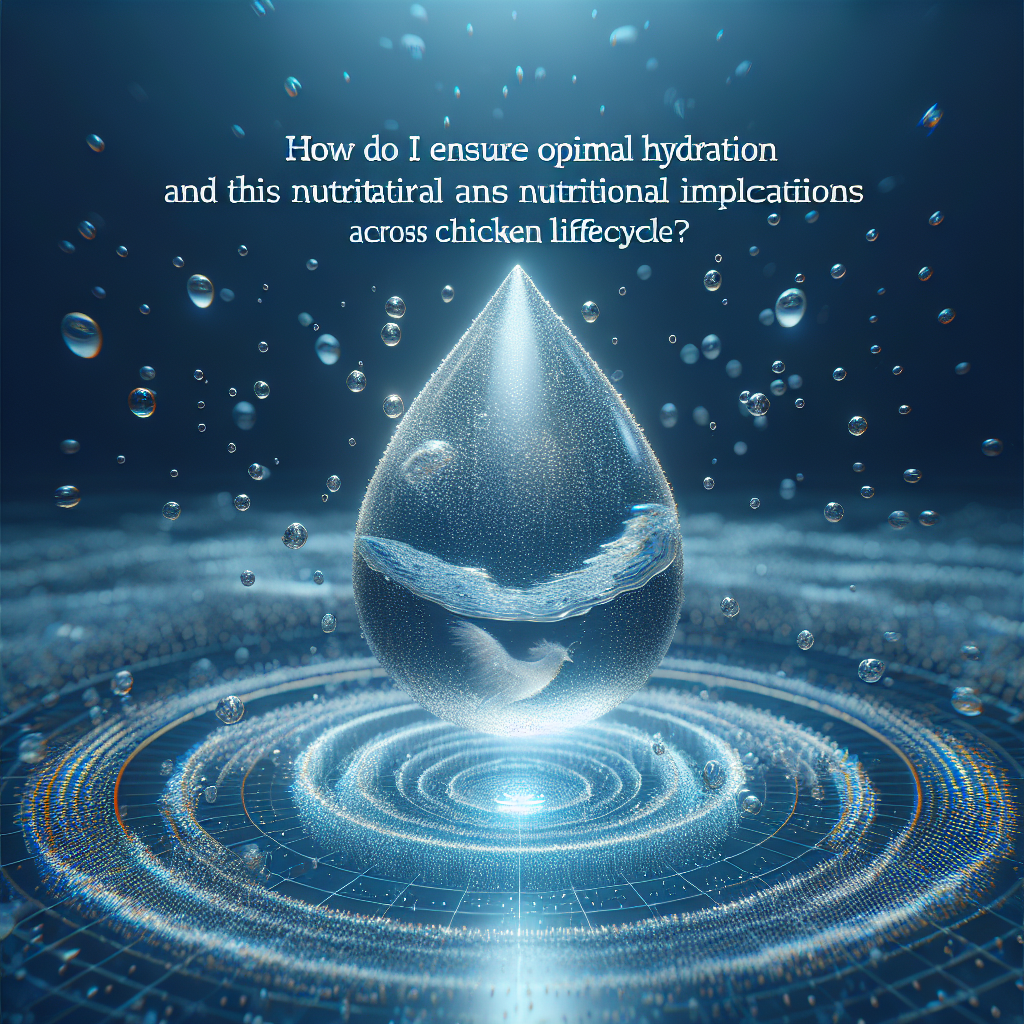During molting, chickens go through a natural process of shedding and regrowing feathers. This article explores the importance of making nutritional adjustments to support the health and well-being of chickens during this period. Discover the key factors to consider, such as providing a balanced diet rich in protein and essential vitamins, and how these adjustments can promote a smoother molt and ensure your feathered friends stay healthy and happy. Get ready to learn how to nourish your chickens during this transformative phase!
Protein Requirement
Increase in Protein Intake
During the molting process, chickens require an increase in their protein intake. Protein is the building block of feathers, and a deficiency in protein can lead to poor feather regrowth. To ensure that your chickens receive an adequate amount of protein, it is recommended to offer a high-quality feed that contains a higher percentage of protein specifically formulated for molting chickens.
Types of Protein Sources
There are various protein sources that can be incorporated into a chicken’s diet during molting. These include animal-based proteins such as fishmeal, poultry by-products, or dried insects. Plant-based proteins like soybean meal, peas, or sunflower seeds can also be included. It is important to offer a diverse range of protein sources to ensure a balanced amino acid profile.
Amino Acid Balance
Apart from the quantity of protein, the amino acid balance is crucial for a chicken’s molting process. Methionine, lysine, and cysteine are among the most critical amino acids needed for feather regrowth. It is essential to provide a feed that contains these essential amino acids in the correct proportions to support healthy molting.
Energy Considerations
Increase in Energy Intake
Molting is an energy-intensive process for chickens. They need an increased energy intake to support feather regrowth and overall bodily functions. Including energy-dense ingredients in their diet such as corn, wheat, or grains can help meet their energy requirements during this period.
Balancing Carbohydrates and Fats
In addition to proteins and energy, carbohydrates and fats play a role in meeting a chicken’s nutritional needs during molting. Carbohydrates provide readily available energy, while fats serve as a concentrated source of energy. Striking the right balance between these two macronutrients is vital to ensure optimal molting health.
Avoiding Excessive Energy
While an increase in energy intake is necessary during molting, it is equally important to prevent excessive energy consumption. Overfeeding can lead to obesity and other health complications. Carefully monitor your chickens’ intake and adjust their feed accordingly to prevent excessive energy intake.
Vitamin and Mineral Supplementation
Vitamin A
Vitamin A is essential for feather regrowth and overall immune function. During molting, it is advisable to provide a vitamin A-rich feed or consider supplementing with a poultry-specific vitamin A supplement. Carrots, dark leafy greens, and sweet potatoes are good natural sources of vitamin A.
Vitamin D
Vitamin D is necessary for calcium absorption and bone health. Exposure to natural sunlight is the best way for chickens to obtain vitamin D. However, during molting, when chickens may spend more time indoors, providing a vitamin D supplement can help maintain their overall health.
Vitamin E
Vitamin E is known for its antioxidant properties, which contribute to a chicken’s overall well-being. During molting, providing a feed that contains vitamin E-rich ingredients such as wheat germ or supplementing with vitamin E can promote healthy feather regrowth.
B Vitamins
B vitamins, including biotin, niacin, riboflavin, and pantothenic acid, are essential for healthy feather development and overall metabolic functions in chickens. A well-balanced diet that includes ingredients like whole grains, legumes, and green leafy vegetables can provide an adequate amount of B vitamins.
Calcium and Phosphorus
Calcium and phosphorus are crucial minerals for egg production and bone health. During molting, when egg production decreases, it is important to ensure that your chickens still receive an adequate amount of calcium and phosphorus. Including calcium-rich sources such as crushed oyster shells or providing a calcium supplement can help meet their needs.
Trace Minerals
Trace minerals, including copper, zinc, selenium, and manganese, are essential for various metabolic processes in chickens. Ensuring a well-balanced feed that contains these trace minerals can contribute to optimum molting health. Consider offering a mineral supplement specifically formulated for chickens to ensure they receive adequate amounts of these essential minerals.
Feeding Frequency
Regular Feeding Schedule
Maintaining a regular feeding schedule is important during molting. Providing feed at consistent times each day helps establish a routine and ensures that chickens have access to the necessary nutrition they need for feather regrowth. Regular feeding also helps prevent stress and maintain their overall well-being.
Avoiding Overfeeding
While it is essential to meet the increased nutritional requirements of molting chickens, it is equally important to avoid overfeeding. Overfeeding can lead to obesity and other health issues. Monitor your chickens’ body condition and adjust their feed intake accordingly. Feeding smaller, more frequent meals throughout the day can help prevent overeating.
Offering High-Quality Feed
Freshness of Feed
To support molting health, it is crucial to offer fresh feed to your chickens. Check the expiration dates on feed bags and store feed in a cool, dry place to maintain its freshness. Using stale or moldy feed can compromise the nutritional value and can potentially harm your chickens’ health.
Nutritional Composition
Choosing a high-quality feed with the right nutritional composition is vital during molting. Look for feeds specifically formulated for molting chickens, as they are designed to meet their unique needs. Consider the protein, energy, vitamin, and mineral content of the feed to ensure it provides the necessary nutrients for healthy molting.
Purchasing from Trusted Sources
When purchasing feed for your chickens during molting, it is important to buy from trusted sources. Buy from reputable feed suppliers or consult with local poultry experts to ensure that you are offering your chickens feed of the highest quality. Trusted sources can provide you with reliable information on the nutritional composition and suitability of the feed for molting chickens.
Hydration Importance
Access to Fresh Water
Providing access to fresh, clean water is essential for supporting molting health. Chickens need an ample supply of water to stay hydrated, aid in digestion, and support feather regrowth. Ensure that waterers are cleaned and refilled regularly to maintain water quality and availability.
Consider Electrolytes
During molting, chickens may experience increased stress levels due to hormonal changes and the energy demands of feather regrowth. Considering the use of electrolyte supplements can help support their overall well-being. These supplements can provide extra hydration support and help restore electrolyte balance during periods of increased stress.
Supplementing with Probiotics
Benefits for Molting Chickens
Supplementing molting chickens’ diet with probiotics can have numerous benefits. Probiotics support gut health, aid in digestion, and enhance nutrient absorption. By promoting a healthy digestive system, probiotics can boost overall health, which is crucial for chickens going through the strenuous molting process.
Choosing the Right Probiotic
When selecting a probiotic for your molting chickens, it is crucial to choose a product specifically formulated for poultry. Look for a probiotic that contains beneficial bacteria strains such as lactobacillus or bifidobacterium. Additionally, opt for a probiotic that has high bacterial viability and is backed by scientific research.
Administration Methods
Probiotics can be administered to molting chickens in various ways. They can be added to their drinking water, mixed in with their feed, or given as a direct oral supplement. Choose the administration method that is most convenient for you and ensures that your chickens receive the recommended dose of probiotics for maximum benefits.
Limiting Stress Factors
Maintaining a Stable Environment
Creating a stable environment for molting chickens can help reduce stress and support their overall well-being. Minimize drastic environmental changes and provide a comfortable and well-ventilated coop. Maintain a consistent temperature and lighting conditions as much as possible to reduce stress levels during the molting period.
Avoiding Excessive Handling
During molting, chickens may be more sensitive and vulnerable. Minimize excessive handling, as it can cause unnecessary stress and potentially harm their newly growing feathers. Limit interactions to necessary tasks such as feeding, watering, and health checks, and handle them with care to avoid unnecessary stress.
Preventing Predator Threats
During the molting period, chickens are more vulnerable to predators due to their reduced mobility and decreased feather coverage. Take extra precautions to secure their coop and run to prevent predator attacks. Regularly inspect fences, ensure coop doors are secure, and consider using deterrents such as motion-activated lights or sound devices to keep predators at bay.
Managing Pecking Order
Molting chickens are often subject to increased aggression and pecking from other flock members. It is crucial to manage the pecking order and reduce stress-inducing behaviors. Provide adequate space for all chickens, offer distractions such as pecking toys or hanging treats, and separate any aggressive birds if necessary to prevent excessive pecking during molting.
Monitoring Health
Observing Molting Progress
Carefully monitor your chickens’ molting progress to ensure it is proceeding smoothly. Observe their feather regrowth and check for any signs of abnormality or slow progress. Be attentive to any changes in appetite, behavior, or overall condition. Regularly inspect their plumage and compare it to their molt pattern to ensure healthy feather regrowth.
Identifying Abnormalities
During molting, it is crucial to identify any abnormalities that may indicate underlying health issues. Look for signs of feather pecking, excessive feather loss, bald patches, or signs of infection. Pale combs or wattles, weight loss, and lethargy can also be indications of health problems. Promptly address any abnormalities by consulting a veterinarian.
Consulting a Veterinarian
If you notice any concerning signs or symptoms during your chickens’ molting process, it is advisable to consult a veterinarian. They can provide professional guidance, conduct necessary examinations, and recommend appropriate treatments if needed. Seeking veterinary assistance can help ensure the health and well-being of your molting chickens.
Gradual Transition into and out of Molting
Adjustment Period before Molting
Before entering the molting process, chickens may benefit from a gradual adjustment period. Reduce the photoperiod (lighting hours) gradually to mimic natural conditions and stimulate the molting process. Providing a balanced diet and ensuring a stress-free environment during this adjustment period can lay the foundation for a successful molting experience.
Supportive Nutrition after Molting
After molting, chickens require continued support to replenish their nutrient stores and promote healthy feather regrowth. Gradually transition them back to their regular diet and ensure it contains the necessary nutrients for recovery. Offering a well-balanced feed and providing additional nutritional supplements, such as omega-3 fatty acids or poultry-specific growth enhancers, can help support their post-molt recovery and optimize feather regrowth.




